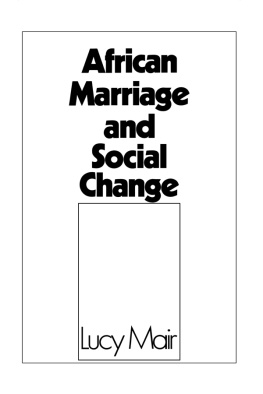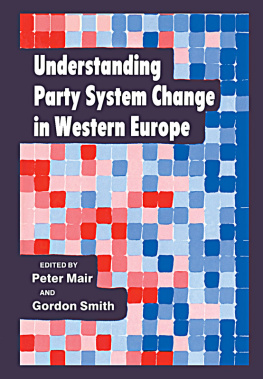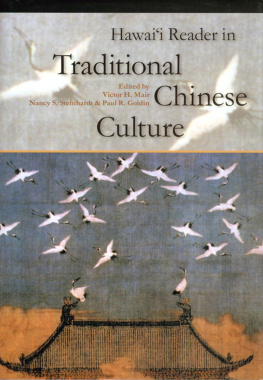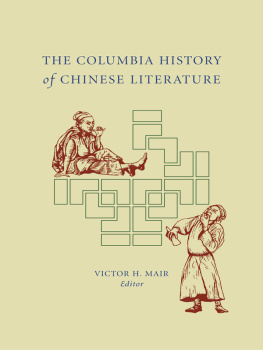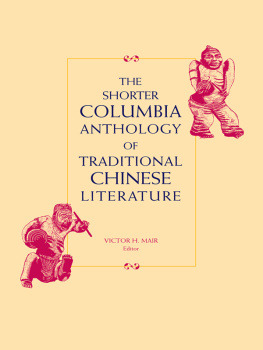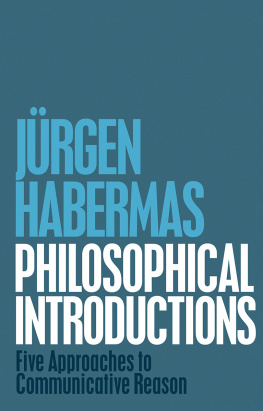Mair E. Lloyd - Communicative Approaches for Ancient Languages
Here you can read online Mair E. Lloyd - Communicative Approaches for Ancient Languages full text of the book (entire story) in english for free. Download pdf and epub, get meaning, cover and reviews about this ebook. year: 2021, publisher: Bloomsbury UK, genre: Religion. Description of the work, (preface) as well as reviews are available. Best literature library LitArk.com created for fans of good reading and offers a wide selection of genres:
Romance novel
Science fiction
Adventure
Detective
Science
History
Home and family
Prose
Art
Politics
Computer
Non-fiction
Religion
Business
Children
Humor
Choose a favorite category and find really read worthwhile books. Enjoy immersion in the world of imagination, feel the emotions of the characters or learn something new for yourself, make an fascinating discovery.
- Book:Communicative Approaches for Ancient Languages
- Author:
- Publisher:Bloomsbury UK
- Genre:
- Year:2021
- Rating:5 / 5
- Favourites:Add to favourites
- Your mark:
- 100
- 1
- 2
- 3
- 4
- 5
Communicative Approaches for Ancient Languages: summary, description and annotation
We offer to read an annotation, description, summary or preface (depends on what the author of the book "Communicative Approaches for Ancient Languages" wrote himself). If you haven't found the necessary information about the book — write in the comments, we will try to find it.
Communicative Approaches for Ancient Languages — read online for free the complete book (whole text) full work
Below is the text of the book, divided by pages. System saving the place of the last page read, allows you to conveniently read the book "Communicative Approaches for Ancient Languages" online for free, without having to search again every time where you left off. Put a bookmark, and you can go to the page where you finished reading at any time.
Font size:
Interval:
Bookmark:

FOR ANCIENT LANGUAGES
In the same series from Bloomsbury:
CLASSICS TEACHING IN EUROPE
edited by John Bulwer
FORWARD WITH CLASSICS
edited by Arlene Holmes-Henderson, Steven Hunt and Mai Musi
STARTING TO TEACH LATIN
by Steven Hunt
TEACHING CLASSICS WITH TECHNOLOGY
edited by Bartolo Natoli and Steven Hunt

Judith Affleck has taught Classics since 1987 in the UK at Eton College, Harrow School and King Edward VI, Stratford-upon-Avon, respectively. She is a published author for Bloomsbury and other education specialists.
Justin Slocum Bailey is a language teacher, teacher-trainer and curriculum designer based in Michigan, USA. He serves on the board of the North American Institute for Living Latin Studies.
Sebastian Domagaa graduated from the University of Warsaw, Poland, with a degree in Applied Linguistics. He teaches English, French and Latin. He is a passionate polyglot, eager to share his enthusiasm for foreign languages. His greatest wish is to make classical literature more accessible by means of the communicative approach.
Daniel B. Gallagher has been the Ralph and Jeanne Kanders Senior Lecturer in Latin at Cornell University, USA, since his retirement from the Vaticans Office of Latin Letters in 2016.
Mallory Ann Hayes teaches Latin at Chesterfield Montessori School outside St. Louis, Missouri, USA. A former Rhodes Scholar, Hayes has taught Latin to students from kindergarten through to high school.
R. Stephen Hill is a PhD student in Classics at the University of Virginia, USA. He earned an MA in Teaching English as a Second Language at the University of Illinois Urbana-Champaign.
Steven Hunt is the Subject Lecturer for the PGCE in Latin (with Classics) at the Faculty of Education, University of Cambridge, UK. He is Editor of the Journal of Classics Teaching and a consultant for the charity Classics for All. He has published three books on Classics Education with Bloomsbury Academic.
Michael Kopf has been teaching classical languages through various methodologies at high-school and graduate level since receiving his MA in Ancient Philology from the Polis Institute, Jerusalem, in 2015.
Clive Letchford is a senior teaching fellow in the Department of Classics and Ancient History at the University of Warwick, UK, where he teaches Latin and Greek.
Mair E. Lloyd is a research associate in Latin pedagogy at the Open University, UK, and creates Latin teaching resources at the Cambridge School Classics Project. Publications include her doctoral thesis, Living Latin: Exploring Communicative Approaches to Latin Teaching (2017), and A Survey of Beginners Language Teaching in UK Classics Departments: Latin (2018).
Marcin Loch (better known as Martinus) is a lecturer in Adam Mickiewicz University in Pozna, Poland, and leader of the Schola Aestiva Posnaniensis (Pozna Summer School). His research interests focus on Latin didactics and Latin sexual vocabulary.
Laura Manning researches active Latin language pedagogy at the University of Kentucky, USA, adapting successful teaching practices from the sixteenth and seventeenth centuries for use in present-day classrooms.
Milena Minkova is Professor of Classics at the University of Kentucky, USA. Her most recent publication is a critical anthology of Neo-Latin Florilegium recentioris Latinitatis (2018).
Katarzyna Ochman is Assistant Professor of Latin at the University of Wrocaw, Poland, and President of the Societas Philologa Polonorum. Her research interests include Antonine literature, history of the Latin language and Latin pedagogy.
Patrick M. Owens teaches in the Classics department at Hillsdale College, Michigan, USA. Owens specializes in Neo-Latin literature, language pedagogy and Latin lexicography. He is the editor of the Morgan-Owens Neo-Latin Lexicon.
Ivn Parga Ornelas is pursuing a PhD in Renaissance Studies at the University of Warwick, UK. He is vice-president of the Oxford Latinitas Project, and a former student and collaborator of the Accademia Vivarium Novum.
Josey Parker has just finished her BA in Classics at the University of Cambridge, UK, and will be returning to take an MPhil in the next academic year. Her research interests include Indo-European linguistics, Ciceronian reception, and Renaissance Neo-Latin.
Jason Pedicone is a co-founder and President of the Paideia Institute in New York. He has a PhD in Classics from Princeton University, USA. He teaches Roman History at Fordham University and lives in Manhattan.
Daniel Pettersson is a co-founder of Latinitium.com and is currently writing his doctoral dissertation on language pedagogy in the sixteenth-century colloquia. He has taught spoken Latin at universities and schools in Europe and the United States.
Leni Ribeiro Leite is an associate professor of Latin Language and Literature at the Federal University of Esprito Santo, Brazil. Her research interests include Flavian poetry, Neo-Latin in the Americas and Latin teaching.
Christophe Rico is Professor of Greek semantics at the EBAF and Dean of Polis, the Jerusalem Institute of Languages and Humanities. He is the author of Polis: Speaking Greek as a Living Language (2015).
Marco Romani Mistretta is Director of European Operations at the Paideia Institute in Rome. He holds a PhD in Classics from Harvard University, USA, and has published widely on ancient intellectual history and its early-modern reception. His research interests focus on science in Graeco-Roman antiquity.
Amelie Rosengren is a co-founder of Latinitium.com, an historian, a published author and a museum educator. Her research has focused on everyday life from antiquity to the early modern era.
Cressida Ryan is Instructor in New Testament Greek at the University of Oxford, UK. Cressida also teaches Latin, with research interests in language pedagogy, the reception of Greek drama and Neo-Latin.
Justin M. Schwamm, Jr. taught high-school Latin in North Carolina, USA, from 1992 to 2014. Since 2014 he has worked online with homeschooling families, adult learners and language teachers.
Daniel R. Streett is Associate Professor of Biblical Studies at Houston Baptist University, USA. His research interests focus on Judaism and Christianity in Antiquity. He is the author of They Went Out From Us: The Identity of the Opponents in First John (2011) and Heavenly Holidays: The Reception of the Jewish Festivals in Early Judaism (2021).
Terence Tunberg, the founder of the Conventiculum Latinum Lexintoniense, a proponent of active Latin for four decades, writes about Latin prose style from antiquity to the present.
David Urbanski is a Latin teacher and Chair of Languages at Brookfield Academy in Wisconsin, USA.
Nancy A. Vander Veer is the co-founder of the Three Column Learning Corporation. She is the programme manager at the Paideia Institute and a former classroom teacher in independent schools. She graduated from Samford University, USA, in 2012 with a BA in Classics.
This volume had its origins in two Classical Association conferences at the University of Edinburgh in 2016 and then at Leicester in 2018 in which the editors and a small group of friends and colleagues (Terence Tunberg, Laura Manning, Jason Harris, Aislinn McCabe, Alma ODonnell, Clive Letchford, Rachel Plummer and Fergus Walsh) presented panels on the topic of Living Latin to university academics and school teachers. The idea of speaking Latin to learn Latin had been an important and noticeable trend in some US classrooms for many years previously, but it had not yet entered into the consciousness of the school classroom in the UK. From this point we decided that a concerted effort needed to be made to introduce for wider consideration, not just the practice, but also the theory behind communicative approaches to teaching and learning ancient languages. The result is this book.
Next pageFont size:
Interval:
Bookmark:
Similar books «Communicative Approaches for Ancient Languages»
Look at similar books to Communicative Approaches for Ancient Languages. We have selected literature similar in name and meaning in the hope of providing readers with more options to find new, interesting, not yet read works.
Discussion, reviews of the book Communicative Approaches for Ancient Languages and just readers' own opinions. Leave your comments, write what you think about the work, its meaning or the main characters. Specify what exactly you liked and what you didn't like, and why you think so.



